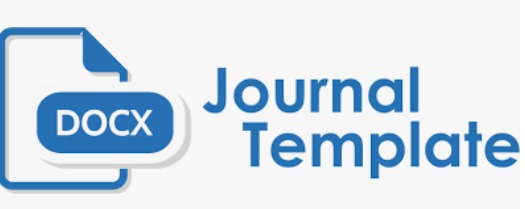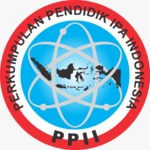Kompetensi Abad 21 Sebagai Bekal Menghadapi Tantangan Masa Depan
DOI:
https://doi.org/10.29408/kpj.v7i1.12999Keywords:
21st century skills, four pillars of life, future challengesAbstract
Indeed, the world of education and learning develops with the changing times. Life in the 21st century demands various skills that must be mastered by a person, so it is hoped that education can prepare students to master these various skills in order to become successful individuals in life. In the 21st century, learning is not only cognitive-centered and students only memorize but in the era of the industrial revolution 4.0 students are required to be able to compete with other countries through creative thinking skills, critical thinking and problem solving (critical thinking and problem solving). problem solving), communicate (communication), and collaborate (collaboration) or commonly referred to as 4C. competencies that must be possessed by students must of course be able to adapt to the development of the 21st century so that with these competencies they will be able to answer all challenges in the future. Important skills in the 21st century are still relevant to the four pillars of life which include learning to know, learning to do, learning to be and learning to live together. Each of these four principles contains specific skills that need to be empowered in learning activities, such as critical thinking skills, problem solving, metacognition, communication skills, collaboration, innovation and creation, information literacy, and various other skills.
References
Ananiadou, K. and Claro, M. 2009. 21st Century Skills and Competences for New Millennium Learners in OECD Countries. OECD Education Working Papers, No. 41. Paris, OECD Publishing.
Armando, R. (2019). Model Pembelajaran Berbasis Masalah. Journal of Chemical Information and Modeling, 53(9), 1689–1699.
Barrett, M., Byram, M., Lázár, I., Mompoint-Gaillard, P. and Philippou, S. 2014. Developing Intercultural Competence through Education. Pestalozzi Series No. 3. Strasbourg, Council of Europe Publishing.
Carneiro, R. and Draxler, A. 2008. Education for the 21st century: lessons and challenges. European Journal of Education, Vol. 43, No. 2, pp. 149-160.
Davies, A., Fidler, D. and Gorbis, M. 2011. Future Work Skills 2020. Palo Alto, Calif., University of Phoenix Research Institute.
Delors, J., Al Mufti, I., Amagi, I., Carneiro, R., Chiung, F., Geremek, B., Gorham, W., Kornhauser, A., Manley, M., Padrón Quero, M., Savané, M-A., Singh, K., Stavenhagen, R., Won Suhr, M. and Nanzhao, Z. 1996. Learning: The Treasure Within: Report to UNESCO of the International Commission on Education for the Twenty-First Century. Paris, UNESCO.
Khoirunnisa, E., & Habibah, E. (2020). Profil Keterampilan Abad 21 (21st Century Soft Skills) pada Mahasiswa. Iktisyaf: Jurnal Ilmu Dakwah Dan Tasawuf, 2(2), 55–68. https://doi.org/10.53401/iktsf.v2i2.20
Herring, S. 2012. Transforming the workplace: critical skills and learning methods for the successful 21st century worker. Big Think (online). http://bigthink.com/expertscorner/transforming-the- workplace-critical-skills-andlearning-methods-for-the-successful-21st-century-worker.
Nichols, J. 2013. 4 Essential Rules of 21st Century Learning. [Online]. Tersedia di: http://www.teachthought.com/learning/4-essential-rules-of-21stcentury-learning/. Diakses 5 Desember 2016.Mansilla, V.B. and Jackson, A. 2011. Global Competence: Preparing Our Youth to Engage the World. New York, Asia Society.
National Research Council. 2012. Education for Life and Work: Developing Transferable Knowledge and Skills in the 21st Century. Washington DC, National Academies Press.
P21. 2007a. The Intellectual and Policy Foundations of the 21st Century Skills Framework. Washington DC, Partnership for 21st Century Skills.
P21. 2007b. 21st Century Curriculum and Instruction. Washington DC, Partnership for 21st Century Skills.
P21. 2008. 21st Century Skills, Education & Competitiveness. Washington DC, Partnership for 21st Century Skills.
P21. 2011. Framework for 21st Century Learning. Washington DC, Partnership for 21st Century Skills.
P21. 2013. Reimagining Citizenship for the 21st Century: A Call to Action for Policymakers and Educators. Washington DC, Partnership for 21st Century Skills.
Redecker, C., Ala-Mutka, K., Leis, M., Leendertse, M., Punie, Y., Gijsbers, G., Kirschner, P., Stoyanov, S. and Hoogveld, B. 2011. The Future of Learning: Preparing for Change. Luxembourg, Publications Office of the European Union.
Scott, C.L. 2015a. The Futures of Learning 1: Why must learning content and methods change in the 21st century? UNESCO Education Research and Foresight, Paris. [ERF Working Papers Series, No. 13].
Scott, C.L. 2015b. The Futures of Learning 2: What kind of learning for the 21st century? UNESCO Education Research and Foresight, Paris. [ERF Working Papers Series, No. 14].
Scott, C.L. 2015c. The Futures of Learning 3: What kind of pedagogies for the 21st century?









